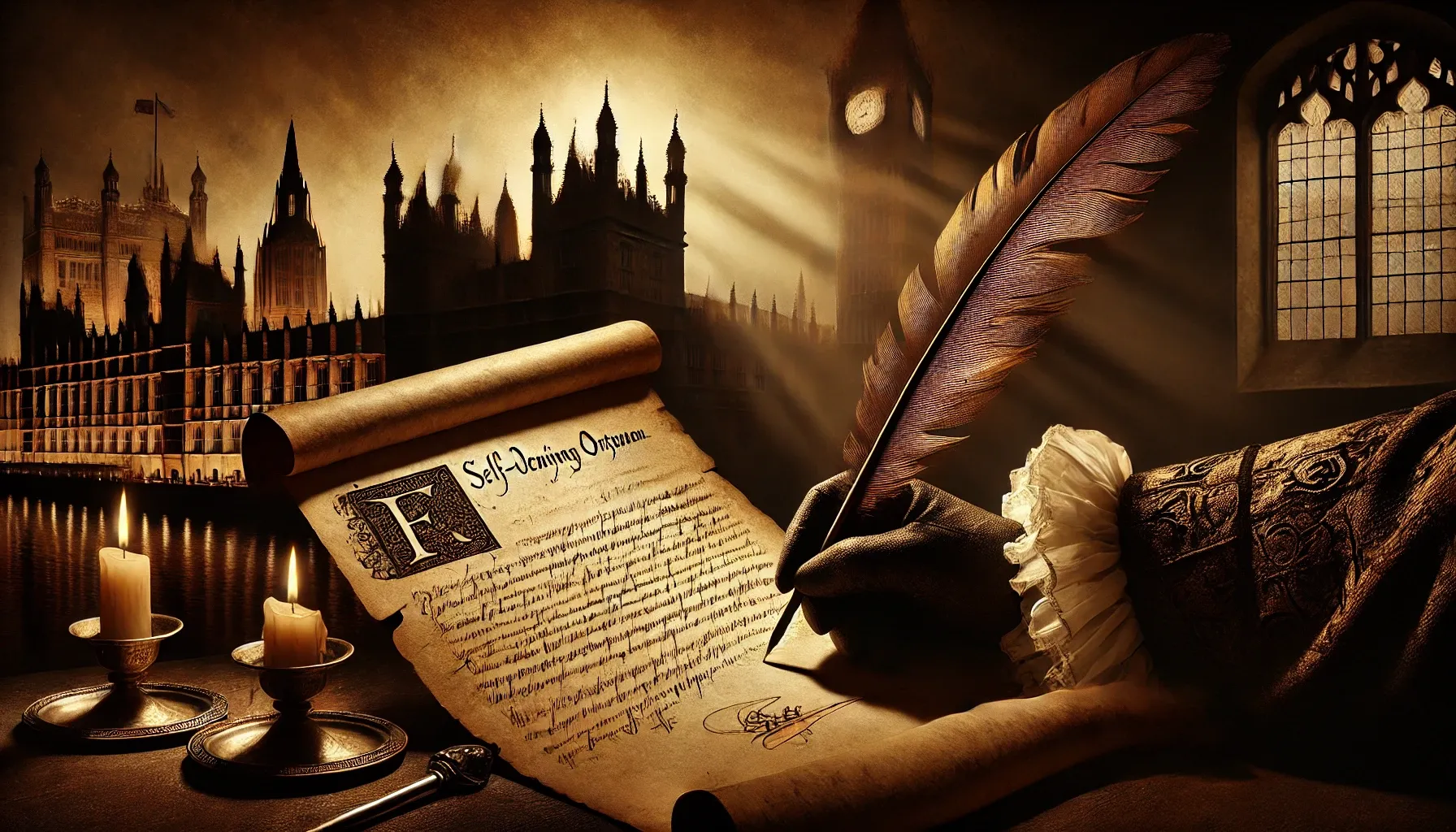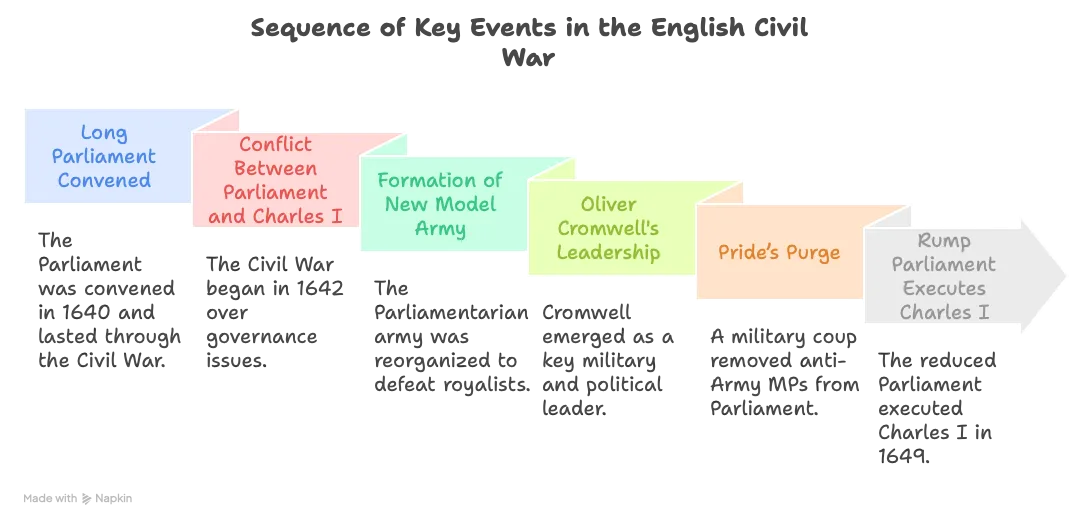UPSC
On This Day Today
Self-Denying Ordinance – A Significant Step Towards New Model Army
Last Updated
3rd April, 2025
Date Published
2nd April, 2025
Share This Post With Someone

Presbyterians, Independents, and the English Civil War
This article explores the ideological and military divisions between Presbyterians and Independents during the English Civil War (1642–1651), highlighting their impact on Parliament and the New Model Army, as documented on the UK Parliament website. It provides critical insights into the political and religious dynamics that shaped this transformative period in British history.
Key Points:
- Outbreak of the Civil War: The English Civil War began on August 22, 1642, when Charles I raised his standard at Nottingham, marking the start of armed conflict between royalists and parliamentarians.
- Parliamentary Divisions: Parliament split into two factions—Presbyterians, who favored a swift end to the war and negotiations with Charles I, and Independents, who sought a decisive military victory to impose their terms on the defeated king.
- Religious Roots: The names "Presbyterians" and "Independents" stemmed from church governance disputes—Presbyterians supported a church ruled by elders with strict doctrine, while Independents advocated tolerance for non-conformist congregations.
- Role of Religion: Religious differences were a fundamental cause of divisions during the Civil War, influencing political and military alignments.
- Criticism of Leadership: In 1644–1645, Independent leader Oliver Cromwell, an MP, accused Presbyterian generals, the Earls of Essex and Manchester (both Lords), of lacking vigor in prosecuting the war.
- New Model Army Ordinance: In February 1645, Independents pushed through an Ordinance reorganizing the Parliamentarian army into the New Model Army, enhancing its effectiveness and aligning it with their goals.
- Post-Surrender Challenges: After Charles I surrendered in 1646, negotiating with him proved difficult due to ongoing Presbyterian-Independent tensions and the rising influence of the New Model Army.
- Royalist Parliament at Oxford: Over 100 royalist MPs formed a rival Parliament in Oxford under Charles I, but its records were destroyed when Oxford surrendered in 1646.
- Negotiations with Charles I: Presbyterians and the Army spent months in fruitless talks with Charles I, who simultaneously encouraged uprisings in England and Wales and a Scottish invasion.
- Second Civil War (1648): Royalist insurgencies prompted a second phase of conflict, which the New Model Army suppressed, intensifying calls to end negotiations with the king.
- Charles I as "Man of Blood": Army leaders labeled Charles I a "man of blood" for waging war on his people, demanding his punishment after the second Civil War.
- Pride’s Purge (December 6, 1648): Colonel Thomas Pride and his troops arrested 45 MPs and excluded 186 others unlikely to support the Army’s aim of punishing Charles I, with 86 more leaving in protest.
- The Rump Parliament: Pride’s Purge reduced the Long Parliament to a "Rump" of about 200 members, paving the way for radical actions, including the king’s trial.
- Self-Denying Ordinance (3rd April 1645): This measure barred MPs from holding military commands, though Cromwell was exempted, strengthening Independent control over the New Model Army.

Glossary:
- English Civil War: Conflict (1642–1651) between Parliament and King Charles I over governance and power.
- Presbyterians: Faction favoring negotiation with the king and a church ruled by elders.
- Independents: Group pushing for military victory and religious tolerance for non-conformists.
- New Model Army: Reorganised Parliamentarian army instrumental in defeating royalists.
- Oliver Cromwell: Independent leader and MP who shaped the New Model Army and Civil War strategy.
- Pride’s Purge: Military coup in 1648 that purged Parliament of anti-Army MPs.
- Rump Parliament: Reduced Parliament post-Purge that executed Charles I in 1649.
- Self-Denying Ordinance: 1645 law separating military and parliamentary roles, with Cromwell exempted.
- Charles I: King whose policies sparked the Civil War, executed in 1649.
- Long Parliament: Parliament convened in 1640, lasting through the Civil War and beyond.